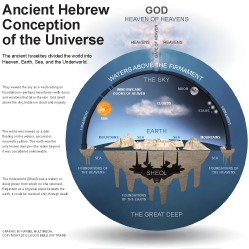116:1–19 The fourth of the Egyptian Hallel psalms (see note on 113:1–9), Pas 116 is a thanksgiving psalm in which the psalmist reflects on a time when Yahweh helped him, and he responds with gratitude and loyalty. Yahweh heard the psalmist’s plea for help and delivered him from danger (vv. 1–4). The psalmist then proclaims Yahweh’s goodness and deliverance (vv. 5–11). Looking to repay Yahweh, he states his intention to pay his vows and offer sacrifices of thanksgiving (vv. 12–19). |
116:1–4 The psalmist is motivated to worship because he is grateful that Yahweh helped him during his crisis. |
116:1 has heard The psalmist indicates that Yahweh granted his request.
116:2 I will call An implicit expression of trust. The psalmist commits to depending on God for the rest of his life because God has helped him.
116:3 Sheol The Hebrew word she’ol is used here, which refers to the realm of the dead (the underworld; see note on Job 14:13; note on 1 Kgs 2:6). The psalmist notes that his anguish is so great that it is as if the realm of the dead has visited him in life.
 Old Testament Theology of the Afterlife
Old Testament Theology of the Afterlife
116:4 the name of Yahweh Generally refers to God’s character and nature rather than a particular label. See note on Ps 91:14.
116:5–7 The psalmist praises Yahweh’s nature and character after being delivered. The psalmist calms himself by recalling Yahweh’s action on his behalf. |
116:6 the simple Refers to a person who is young or naïve. The psalmist implies that Yahweh saves those who cannot save themselves.
116:8–11 The psalmist returns to addressing Yahweh personally before making a further commitment to obey Him. The psalmist reflects a pivotal moment of trust in the midst of crisis. |
116:8 In this verse, the psalmist lists things Yahweh has delivered him from. Each of these expressions portrays disastrous experiences from which there seemed to be no escape. |
my eyes from tears Describes deep, irreversible loss rather than casual grief.
116:9 I will walk before Yahweh The psalmist asserts that he will live in continual obedience to Yahweh. All of his actions will withstand God’s inspection.
the land of the living Normal human existence, the opposite of she'ol (see note on v. 3).
116:10 am afflicted greatly The psalmist may indicate that he had no escape.
116:11 a liar The psalmist may be saying that no one could help him because every person that he knew would eventually fail him.
116:12–14 The psalmist describes how he will worship in response to Yahweh’s help. |
116:13–14 Verses 13–14 is repeated in vv. 17–18; both passages describe public actions of worship. |
116:13 the cup of salvation The psalmist may be referring to a ritual involving a cup of wine as a libation (or drink offering).
(or drink offering).
116:14 my vows Reflects a custom of making promises to Yahweh in gratitude or making a promise to repay in return for divine help.
in the presence of all his people A public display of gratitude meant to bolster Yahweh’s reputation.
116:15–19 The psalmist emphasizes his loyalty to Yahweh after deliverance. Heartfelt gratitude is at the center of his public worship. |
116:15 his faithful ones The word chasid (“pious” or “faithful”) refers to those who actively practice chesed (God’s covenantal love).
116:17 a sacrifice of thanksgiving See note on Ps 107:22.
116:19 the house of Yahweh Probably refers to the temple in Jerusalem and its adjoining facilities. See note on 92:13; note on 99:6.
O Jerusalem The center of worship in ancient Israel, which was subsequently seen as a holy city.
Praise Yah A call to worship Yahweh that regularly occurs only in the last third of the psalms.

|
About Faithlife Study BibleFaithlife Study Bible (FSB) is your guide to the ancient world of the Old and New Testaments, with study notes and articles that draw from a wide range of academic research. FSB helps you learn how to think about interpretation methods and issues so that you can gain a deeper understanding of the text. |
| Copyright |
Copyright 2012 Logos Bible Software. |
| Support Info | fsb |
 Loading…
Loading…

